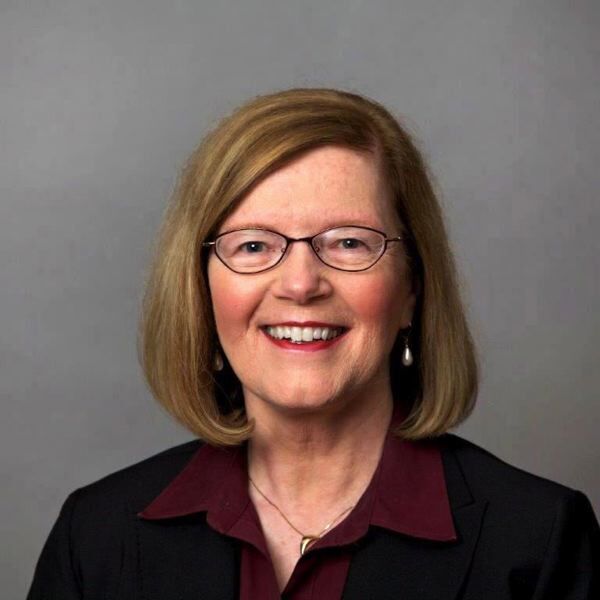Rosenbaum’s legislative legacy: fighting for social, economic justice
Published 12:00 am Tuesday, January 3, 2017

- Rosenbaum
Tens of thousands of Oregon’s lowest-paid workers owe a bit of thanks to Diane Rosenbaum, who’s stepping down from the Oregon Legislature next week after 18 years in office.
Trending
Few, if any, have played as great a role in lifting Oregon’s minimum wage to almost the highest in the nation.
A Democratic state senator from Southeast Portland, Rosenbaum is a lifelong advocate for workers rights and other social justice causes. She spoke about one of those causes — equal pay for women — at a Dec. 12 meeting of the House Business and Labor Committee.
“Equal pay and women’s rights have been the passion of a lifetime for me,” says Rosenbaum, whose final day in office is Jan. 9. “There’s a lot more we need to do to deal with the wage gap between men and women.”
Trending
Despite state and federal laws dating back more than 50 years requiring equality, women’s pay continues to lag behind men. Oregon women earn 82 cents for every dollar paid to men, according to 2014 statistics.
Rosenbaum played a role in three different minimum-wage increases enacted over several years, including a 2016 law that raises the wage in stages and sets three tiers across the state. For Portland, the minimum will reach $14.75 per hour by 2023.
Among her other achievements are broader availability of birth control, expanded screening and treatment for breast cancer — she herself is a survivor — a requirement for paid sick leave, and an increased state earned-income tax credit that benefits low-income workers.
“It’s a rare privilege for an elected official to be able to bring your life experience and the things you care about and turn them into laws that will affect the lives of real people,” she says.
Rosenbaum, 67, rose to become Senate majority leader, the person who speaks for and leads the party agenda, from 2010 to 2015.
She will be succeeded in the Senate by Democrat Kathleen Taylor of Milwaukie in District 21, which covers Southeast Portland, Milwaukie and Oak Grove.
Rosenbaum looks forward to spending more time with her father, who just turned 94, an aunt who is 103, and her husband of more than 34 years, Jas Adams. He was a lawyer in the Oregon Department of Justice for 25 years, and is an adjunct law professor at Willamette University and member of the Oregon State Marine Board.
“I think it was time for me to continue to work on the things I care about, but do it in a different capacity,” Rosenbaum says.
Getting into politics
Rosenbaum links herself to a century-long line of advocates such as Caroline Gleason and Sister Miriam Theresa. Gleason spearheaded a survey of women’s working conditions that led to Oregon passing the nation’s first minimum-wage law back in 1913 — 25 years before Congress passed the Fair Labor Standards Act.
“I see this as a historical continuum in Oregon of people who are passionate and care a lot about people who do not have a voice — people who stand up, speak out and come down to the Capitol,” Rosenbaum says.
She says she acquired those values from her parents, particularly her father, a high school math teacher and a union member.
“They were very poor Jewish kids and first-generation Americans. Both of my parents instilled in me a strong belief that you have to stand up and fight for people who have a hard time,” she says.
“Whether it’s low-income people, people without health care and need coverage, or gay and lesbian Oregonians being discriminated against, that is what government is for.”
Her positions with the Communications Workers of America and on the executive board of the Oregon AFL-CIO labor federation gave her a platform for involvement in state politics.
She also was appointed by then-Gov. Barbara Roberts to the Oregon Commission for Women.
Rosenbaum was a leader of the successful 1996 ballot initiative campaign raising Oregon’s minimum wage in steps to $6.50 per hour.
Her political involvement deepened after a 1997 attempt by Republicans to allow employers to count tips toward the minimum wage. The attempt failed on a tie vote in the House.
“That was probably the pivotal event that convinced me that I needed to run for the Legislature,” Rosenbaum recalls.
“People do not work hard as volunteers to obtain thousands of signatures — and voters decide overwhelmingly they want to raise the minimum wage for all Oregonians — only to have the Legislature turn around and say maybe the voters did not really mean it for restaurant workers, farmworkers or young people.”
When a House seat became open in 1998, Rosenbaum won a six-way Democratic primary with 37.8 percent of the vote.
In the minority
Rosenbaum was among 25 new members, plus two re-entering after previous legislative service, who joined the 60-member House in 1999 after term limits resulted in its largest freshman class in 25 years.
Among her classmates were Deborah Kafoury and Jeff Merkley, both Portland Democrats who became future caucus leaders. Kafoury is now Multnomah County chair, and Merkley is a U.S. senator.
One of her part-time staffers in 2001 was Suzanne Bonamici of Beaverton, a Democrat who joined Rosenbaum later in the Oregon House and Senate before winning a U.S. House seat in 2012.
During her first eight years, Rosenbaum was in a chamber where Republicans were the majority.
“I believed that coming here was worth it,” Rosenbaum says. “I even believed it in my first eight years, when I was in the minority party and almost nothing I cared about ever got voted on.”
Rosenbaum had one big victory outside the Legislature. She was chief sponsor of a 2002 ballot initiative that set annual increases in Oregon’s minimum wage tied to the Consumer Price Index.
Although voters in Washington state approved a similar measure two years earlier, Rosenbaum said the Oregon vote opened the way for other states to do so. A total of 18 states now have automatic increases, though some have not yet taken effect.
“The history of our state is that we have led the way on so many pioneering issues,” she says.
In the majority
When Democrats won a House majority by one seat in the 2006 election, Rosenbaum became speaker pro tem — a largely ceremonial position. But it placed her in the leadership with Speaker Jeff Merkley and made her part of the Democratic team that enacted a progressive agenda after 18 years of split control of state government.
Virtually the only big Democratic measure that failed was a proposal for paid family leave, which passed the House but died in the Senate on the final day of the 2007 session.
The majority party picks the presiding officer, who in turn names the leaders and members of committees, controls the flow of legislation, and sets the agenda.
“Most people would agree that it’s better to hold the gavel and be in the majority,” Rosenbaum says.
When Gov. Kate Brown vacated the District 21 Senate seat in 2008 and was elected Oregon secretary of state, Rosenbaum succeeded her. Democrats account for 60 percent of its current registered voters.
“It’s chock-full of voters who are by and large progressive and very engaged in issues,” Rosenbaum says. “It has given me the ability to be a voice for things I have always cared about as fundamental issues of social and economic justice. I never have to worry about people being mad at me because I stood up and did what I thought was right.”
Before she took her new seat in 2009, Rosenbaum became House speaker for 10 days after Merkley resigned early to start his new term as a U.S. senator.
“I think I am going to be a funny footnote in history,” she says.
Into the Senate
As Rosenbaum entered the Senate, the Legislature spent much of the next six years coping with Oregon’s economic downturn. The statewide unemployment rate peaked at 11.9 percent in spring 2009; it’s now down to 5 percent.
She became majority leader in 2010, after Democrats lost two seats and held on by a 16-14 margin. There was no change in 2012, but Democrats gained two seats in 2014.
The larger majority made it possible for Democrats to pass a number of new laws in 2015 and 2016. In addition to pay equity and the three-tiered minimum wage, they included paid sick leave — Oregon is one of four states requiring it — retirement savings accounts for private-sector workers, expanded background checks for firearms sales, and automatic voter registration based on driver records, which added 270,000 names to the rolls.
In fall 2015, Rosenbaum and Portland Democrat Ginny Burdick swapped positions, Rosenbaum becoming president pro tem and Burdick majority leader.
“I have been able to leave at a time when we have accomplished so much,” she says. “But there is still a lot more to do.”
Rosenbaum will continue her involvement in the Oregon Women’s Investment Network Political Action Committee — which promotes candidacies of pro-choice Democratic women — the board of Labor’s Community Services Agency funded by United Way, and the Oregon Hunger Task Force.
Rosenbaum would like to promote a fund for paid family leave to supplement state and federal laws, which allow unpaid leave. California, New Jersey and Rhode Island are the only states with paid plans.
Rosenbaum says she recalls her former Senate colleague, Joanne Verger of Coos Bay, who took time to accompany her late husband, Lawton, for chemotherapy — but others could not afford to do so.
“I have always remembered that, because it ought not to be a luxury for people who can afford it or have jobs that allow it,” Rosenbaum says. “It ought to be a basic right for everybody to take care of their loved ones when they need you in a health crisis.”
A last hurrah
Earlier in December, Rosenbaum attended a Washington, D.C., conference of the State Innovation Exchange, a group of state lawmakers that is a progressive counterweight to the business-oriented American Legislative Exchange Council. She was among the lawmakers who met with outgoing President Barack Obama and toured the West Wing of the White House.
“I doubt I will be invited back anytime soon in the next four years,” Rosenbaum says.
“The visit was as awe-inspiring as when people come in here for the first time. The way I felt when I was in the West Wing is the way I feel about the Oregon Senate and House. They indeed are the people’s houses that we borrow for a little while in the history of our state and country.
“Our names are on these desks. But the privilege we have is to give a voice and vote to those people who elected us.”
pwong@pamplinmedia.com
twitter.com/capitolwong







